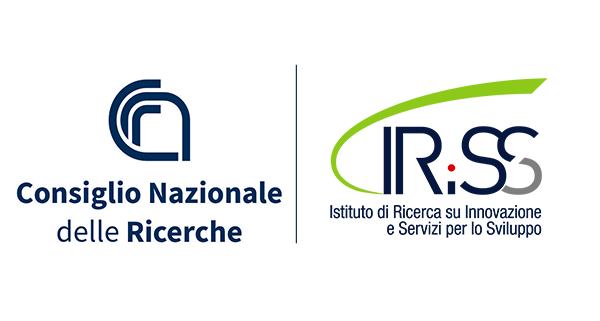Institute for Research on Innovation and Services for Development
Resilience - Innovation - Sustainable Development | Transparency – Organization – Meritocracy
“The City of My Future”: international award in memory of Claudia Trillo
The International Award “The City of My Future” honours the legacy of Professor Claudia Trillo, (1972–2023), architect, researcher, and educator of international standing. A passionate advocate for sustainable urban development, Professor Trillo was known for her work at the intersection of cities, heritage, and sustainable design, passionately developed with the aim of contributing to the fight against the socio-environmental crisis. She developed innovative models, methods, and tools to support urban transformation, promote cultural identity, and advance inclusive and sustainable housing solutions. She remains an enduring inspiration, particularly for women navigating academic and professional paths in architecture and urban studies.
This call for proposals invites students, young professionals, and early-career researchers under 35 to reflect on what cities of the future might look like. Participants are encouraged to propose original and forward-thinking perspectives rooted in the themes that were central to Prof. Trillo’s work: the city, youth, sustainability, creativity, international dialogue, and contemporary design practice.
The award seeks to foster original and multidisciplinary approaches to urban transformation, encouraging young professionals and researchers to engage with the pressing issues that shape our cities today and in the future, from the role of digital innovation and intersectoral collaboration to the broader social and environmental challenges facing urban contexts.
Participants are invited to propose their own vision of the city of tomorrow, offering a personal and creative interpretation of how cities can evolve. Proposals may address themes such as environmental sustainability, circular economies, the regeneration of urban spaces, the adaptive reuse of cultural heritage, or the application of emerging technologies.
Rather than revisiting academic thesis work, the competition aims to spark a shared reflection on the city’s future form, exploring how younger generations can actively contribute to its design, where their interventions might be most impactful, and which languages, methods, or tools – whether already established or entirely experimental – might best support their vision.
Some of the key questions guiding the reflection include:
- What does it mean to creatively design the city of the future?
- How can urban spaces be transformed in response to environmental and social challenges?
- In what ways can cities become more inclusive, accessible, and sustainable for all?
- How are new technologies reshaping the design and management of urban environments?
The award is structured in two phases:
- Stage 1: Submission of a long abstract (max. 800 words) by October 15, 2025
- Stage 2: Selected finalists will be invited to submit a full paper (max. 8,000 words) by March 15, 2026
A peer review process will evaluate the long abstracts, and the most promising proposals will move to the final stage. The evaluation process will be overseen by two international juries of peer reviewers and expert evaluators from across Europe and beyond. The full list of jurors is available in the official call.
The best contributions will receive monetary awards. In addition, the 15 selected will be published in a prestigious international journal indexed in Scopus, and the top 3 papers will be featured in Urbanistica, the journal of the Istituto Nazionale di Urbanistica (INU).
The award is coordinated by a Scientific and Organising Committee composed of leading academics and professionals from Italy and the UK including: Maria Cerreta (University of Naples “Federico II”), Victoria Cotella (University of Naples “Federico II”), Giuseppe De Luca (University of Florence), Gabriella Esposito De Vita (CNR), Daniela Mello (Urban Planner), Athena Moustaka (University of Salford, UK), Ali Parsa (University of Westminster,UK), Valeria Saiu (University of Cagliari), Stefano Stanghellini (INU).
Per informazioni:
Gabriella Esposito
CNR – Istituto di Ricerca su Innovazione e Servizi per lo Sviluppo
Vedi anche:
